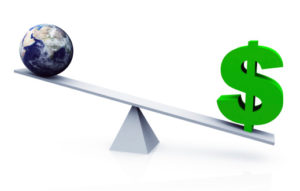Macro Struggles Amidst Mixed Hedge Fund Performance
Posted by Colin Lambert. Last updated: April 12, 2023
While it has very much been the poster child for the hedge fund industry over the past year as volatility returned to fixed income and FX markets, macro strategies suffered in March thanks to the upheaval in the banking industry.
According to hedge fund performance indexation firm HFR, Macro led strategy declines for the month, as quantitative, trend-following CTA strategies posted sharp declines with contributions from short fixed-income exposures. The HFRI Macro (Total) Index fell 3.2% while the investable HFRI 400 (US) Macro Index fell 4.1% (estimated). Quantitative, trend-following CTA strategies led declines with the HFRI 500 Trend Following Index falling 5.2%; these gains were partially offset by the HFRI Macro: Discretionary Thematic Index, which gained 0.3%.
Overall, the HFRI Fund Weighted Composite Index (FWC) declined an estimated 0.8% in March, while the investable HFRI 500 Fund Weighted Composite Index lost 1.2%(estimated), and the HFRI 400 (US) Fund Weighted Composite Index fell 1.5%(estimated). Performance gains were led by Equity Hedge strategies.
The HFR Cryptocurrency Index continued its strong start to the year, rising 5.2% to increase its year-to-date return to +31.4%. The HFR Risk Parity Vol 15 Index bounced back from a -6.8 decline in February to post a +5.9 gain in March, moving its year-to-date performance to +7.1 percent.
Performance dispersion widened for the month, as the top decile of the HFRI FWC constituents advanced by an average of +7.5%, while the bottom decile fell by an average of -10.1%, representing a top/bottom dispersion of 17.6%. By comparison, the dispersion of February performance was only 11.3%. Nearly half of hedge funds posted positive performance in March, HFR says.
“Hedge funds effectively navigated a historic surge in bank and financial risk, as well as an adjustment to interest rate outlook in March, including the failure of SVB bank, generalised weakness across regional banks, and the government and regulator assisted acquisition of Credit Suisse by UBS,” says Kenneth Heinz, president of HFR. “The industry saw gains across equity and cryptocurrency focused strategies offset by declines in short interest rate and credit sensitive exposures.
“The combination of these financial events is likely to have long-term implications for financial markets, in addition to hedge fund performance, with macroeconomic impacts ranging from policy regarding uninsured deposits, integrity of AT1 financing, and precedent for government involvement in destabilised financial situations, with these likely to contribute to increased uncertainty and likelihood of extreme dislocations,” he adds. “Institutions and investors are interested in allocating to hedge funds which have demonstrated the robustness of their strategies through this challenging macroeconomic paradigm shift, with these funds likely to lead industry performance through mid-year 2023.”

